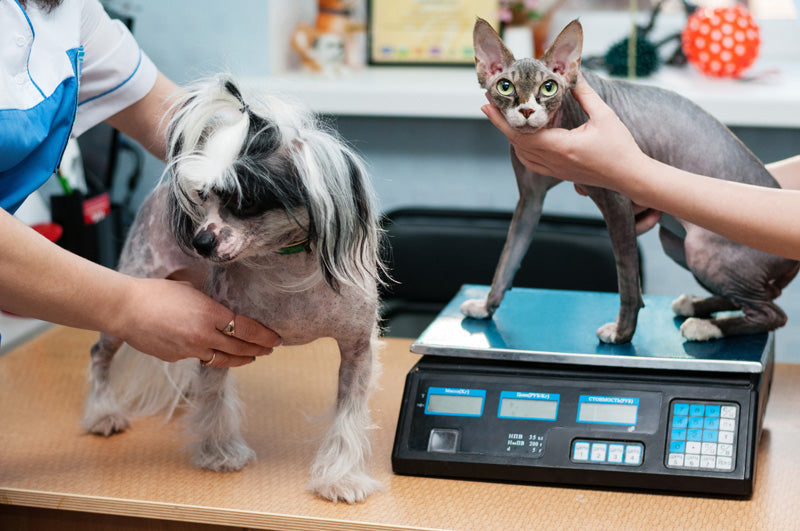10 Questions to Ask Your Veterinarian in 2024, According to a Veterinarian
Ensure your pet's health in the new year with these vital questions for your vet. From nutrition plans to vaccination schedules, parasite prevention to behavior changes, this article covers it all. Be the best pet parent you can be - unlock the secrets to pet health now.
Ensuring the physical well-being of your four-legged friend is one of the most important responsibilities as a pet parent. the new year right around the corner, there’s no better time to revisit your companion’s health plan and discuss potential improvements or adjustments to their diet and lifestyle.
Read on to learn some of the best questions to ask your veterinarian at your next annual visit, many of which I’ve answered for clients in my own practice.
10 Great Questions to Ask Your Veterinarian at Your Next Appointment
1. What Is the Best Nutrition Plan for My Pet?
Proper nutrition is the cornerstone of your pet's well-being, especially since most pets have unique dietary requirements based on age, breed, and current health condition.
Discussing your furry friend’s specific needs with your veterinarian will help you tailor a nutrition plan that supports their growth, maintains a healthy weight, and addresses any existing health concerns. This is also a great time to discuss pet supplements and whether your pet would benefit from any specific formulas such as joint support or a daily multivitamin.
2. What Vaccinations Does My Pet Need, and How Often?
Understanding your pet's vaccination schedule is paramount to preventing various diseases.
Different pets will require different vaccines, and these needs may evolve over time. By asking your veterinarian about the necessary vaccinations and their frequency, you can ensure your pet is protected against common and preventable illnesses, creating a solid foundation for their overall health.
3. How Can I Prevent Parasites in My Pet?
Parasites like fleas, ticks, and worms can pose serious threats to your pet's health, but the good news is that most of them are easily preventable.
Ask your veterinarian about preventatives and which methods they recommend. They can also answer any questions about suitable medications, offer advice on environmental control, and guide you in recognizing early signs of parasitic infestations.
4. What Behavior Changes Should I Watch For?
Pets communicate differently than humans, so if your pet suddenly displays uncharacteristic behavior, you’ll want to pay attention. These behaviors can be early indicators of underlying health issues.
By discussing potential red flags with your veterinarian, you'll be better equipped to recognize signs of distress, discomfort, or illness in your precious pets. This proactive approach can also lead to early diagnosis and intervention, which could save their life.
5. Are There Breed-Specific Health Concerns for My Pet?
Some dog and cat breeds are predisposed to specific health issues. Understanding the potential risks associated with your pet's breed enables you to take preventive measures and schedule appropriate screenings. Early detection of breed-specific health issues can significantly improve the chances of successful treatment.
6. What Can I Do to Maintain My Pet's Dental Health?
Dental care is one of the most overlooked aspects of a pet’s overall health, but it’s also one of the most crucial.
Inquiring about dental hygiene practices and potential issues will help you establish a routine that includes regular brushing, dental chews, and professional cleanings. In time you’ll find that oral health contributes to your pet's quality of life.
7. How Can I Manage My Pet’s Weight?
Obesity is a common health issue among pets, and if left unchecked, it could lead to various complications such as diabetes and joint problems. Ask your veterinarian about your furry friend’s ideal weight and ways to maintain it through proper diet and exercise. This discussion can help you create a weight management plan tailored to your pet's specific needs.
8. What Are the Signs of Pain or Discomfort in My Pet?
We hate the idea of our pets being in pain, but it can happen. Since most animals hide any signs of physical discomfort, it’s up to their owners to spot the subtle signs.
Discuss with your veterinarian the signals that may indicate pain, such as sudden changes in behavior, appetite, or mobility. This knowledge will empower you to seek prompt veterinary care if needed.
9. How Can I Prepare for Emergencies?
Whether it be an unexpected injury or a national disaster, it’s always a good idea to be prepared for anything.
Ask your veterinarian about emergency preparedness, including the location of the nearest 24-hour veterinary clinic, first aid tips, and essential items for a pet emergency kit. Proactive planning can make a significant difference in critical situations.
10. Is Holistic Treatment a Good Choice For My Pet?
Holistic healthcare has boomed in popularity in recent years, even for pets. This is because holistic medicine takes a look at the “whole you” instead of focusing on just one health aspect at a time.
As a pet acupuncturist, I can attest that several of my patients have greatly benefited from this holistic form of treatment. There are many other practices under the holistic healthcare umbrella worth discussing with your veterinarian such as:
- Nutrition
- Chiropractic
- Massage
- Hydrotherapy
- Aromatherapy
Kickstart the New Year With the Best Pet Health Tips
Are you ready to make 2024 your pet’s healthiest and happiest year yet? Subscribe to our newsletter to get even more health tips for both dogs and cats delivered straight to your inbox. You’ll also receive exclusive deals on our holistic pet supplements, be the first to hear exciting news from Fera Pet Organics, and more.
Happy New Year from our family to yours!
Sources:




